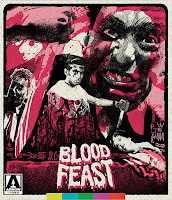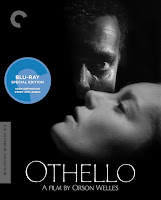Aussie writer-director Craig Anderson somehow convinced the iconic Dee Wallace (E.T., Cujo, The Howling) to take part in his relentlessly insane horror movie about a masked intruder who takes his mommy and daddy issues out on a family—including a heavily pregnant young woman—getting together for Christmas.
the traveler's resource guide to festivals & films
a FestivalTravelNetwork.com site
part of Insider Media llc.
Film and the Arts
Off-Broadway Review—Brian Friel’s “The Home Place”
- Details
- Parent Category: Film and the Arts
- Category: Reviews
- Published on Thursday, 26 October 2017 01:30
- Written by Kevin Filipski
The Home Place
Written by Brian Friel; directed by Charlotte Moore
Performances through November 19, 2017
|
John Windsor-Cunningham and Rachel Pickup in Brian Friel's The Home Place (photo: Carol Rosegg) |
It’s a measure of how dire things are on Broadway for non-musicals that, a dozen years after it was written—and two years after its author died—the great Irish playwright Brian Friel’s lovely valedictory, The Home Place, is getting its New York premiere, not on the Great White Way (where Friel was represented by such classics as Dancing at Lughnasa, Translations and Faith Healer), but at the Irish Rep.
That’s not to say that the cozy Irish Rep is not a good place for The Home Place; on the contrary, this small-scale drama with a fairly large cast sits comfortably on the theater’s small stage, and in director Charlotte Moore’s sympathetic hands, the comic and tragic sparks created during this bracing snapshot of late 19th century Ireland—where the increasingly outspoken Nationalist movement against the English presents itself in several desultory but significant encounters—are gracefully embodied in this captivating production.
In the rural village of Ballybeg in County Donegal, middle-aged Englishman Christopher Gore lives with his adult son David at The Lodge, an old homestead, along with the much younger Margaret, a neighbor turned close friend who has overseen upkeep of the place in the years following the death of Christopher’s wife. Although both men are in love with Margaret, she has fallen for David, and doesn’t want him to indelicately let everyone know, including his father.
Meanwhile, Christopher’s cousin, Dr. Richard Gore from the family’s “home place” of Kent, is taking cranial measurements of various locals to prove the supposed Darwinian theory that the Irish are an inferior race. As usual in Friel’s lilting, poetic plays, the political and the personal dovetail beautifully, even with the added weight of racism and nationalism that has scarred both countries.
Moore directs with supreme understatement: the actors are led by Rachel Pickup, a winning and touching Margaret, and John Windsor-Cunningham, a forthright and commanding Christopher. Only Ed Malone makes a less than vivid impression with his awkward, immature David—but even that can’t harm this artful, bittersweet final work from one of our premier playwrights.
The Home Place
Irish Repertory Theatre, 132 West 22nd Street, New York, NY
irishrep.org
October '17 Digital Week IV
- Details
- Parent Category: Film and the Arts
- Category: Reviews
- Published on Wednesday, 25 October 2017 02:14
- Written by Kevin Filipski
Aussie writer-director Craig Anderson somehow convinced the iconic Dee Wallace (E.T., Cujo, The Howling) to take part in his relentlessly insane horror movie about a masked intruder who takes his mommy and daddy issues out on a family—including a heavily pregnant young woman—getting together for Christmas.
October '17 Digital Week III
- Details
- Parent Category: Film and the Arts
- Category: Reviews
- Published on Wednesday, 18 October 2017 03:20
- Written by Kevin Filipski
The Collection
(Warner Archive)
(Eagle Rock)
(MVD)
As a London detective sergeant devastated by the collapse of her marriage and who returns to the force to track a serial killer who may be linked to her ex, Anna Friel gives a complex performance of noble ferocity.
Her formidable presence, which helps make even the least credible plot and character bits in this eight-episode series work thoroughly and satisfyingly, elevates the tattered but taut police procedural to a status it probably doesn’t deserve.
October '17 Digital Week II
- Details
- Parent Category: Film and the Arts
- Category: Reviews
- Published on Wednesday, 11 October 2017 03:04
- Written by Kevin Filipski
More Articles...
Newsletter Sign Up






























